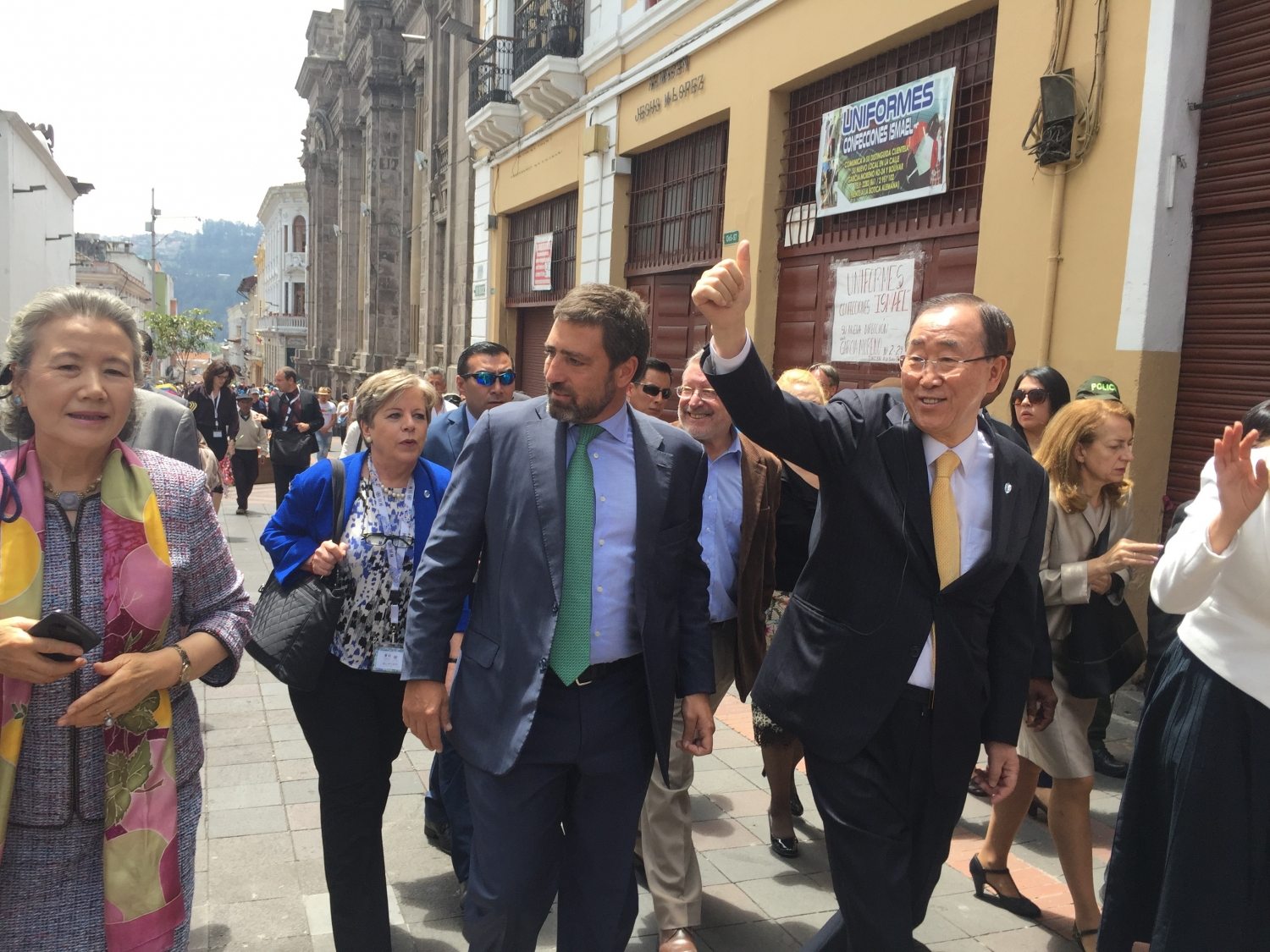UN Secretary-General Ban Ki-moon urged mayors across the world to “take strong ownership” of a new global agenda for sustainable development in the towns and cities they represent.
Mr Ban was speaking on Sunday in the Ecuadorian capital, Quito, on the eve of the official opening of the UN’s Habitat III conference, which aims to re-think the planning and management of towns and cities across the world, through the adoption a the New Urban Agenda.
The new set of global standards for urban development, should be prioritized alongside implementing the 2030 Agenda for Sustainable Development, and its 17 Global Goals, or SDGs, agreed by 193 countries just over a year ago at UN Headquarters, added the Secretary-General.
He pointed to Goal 11, which “pledges to make human settlements inclusive, safe, resilient and sustainable.”
“Elected officials, Mayors, Governors and Councillors, are the forefront of the battle for sustainable development,” he said, to loud applause from delegates to the Second World Assembly of Local and Regional Governments.
“In short, your role is growing by the year…You are faced with the immediate daily demands of your people: for housing, transport, infrastructure, and basic services.”
The Habitat III conference has been 20 years in the making; the third global summit of its kind, dedicated to housing and sustainable urban development.
By hosting the conference, Quito becomes the first city in the “Global South” to take on the role, and thousands have flocked to the picturesque capital, which straddles the equator.
Urban development is seen as an increasingly important priority for the United Nations, as the world urban population is set to nearly double by 2050.
Mr Ban praised the invaluable role played by mayors and other local government leaders, in devising the New Urban Agenda.
Although national governments must play a strong role in devising legislation and policies to make cities grow sustainably in the future, it was local and regional leader who would have to “implement these visions on the ground”.
The development goals and also the commitment to curb carbon emissions made through the Paris Agreement on climate change last December, would be “under your direct leadership”, he told delegates in the main hall of Quito’s Casa de la Cultura Ecuatoriana.
“Take strong ownership of this vital agenda. Stand up for the people you represent,” he added.
He ended by calling for them to “forge a strong partnership between and among civil society and the private sector. You cannot do it alone. Help to create the towns and cities of the future.”

